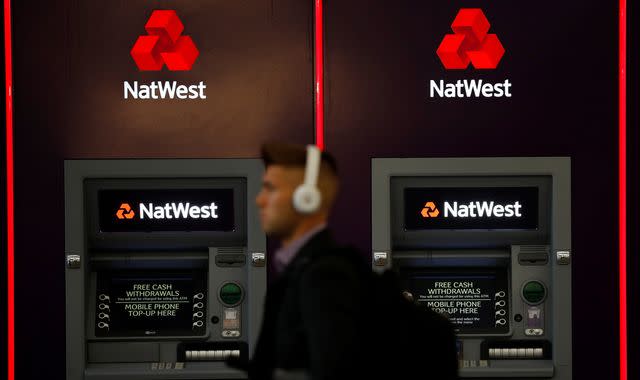Government sale of NatWest stake to hit fresh milestone

The government's sale of its stake in NatWest Group will reach a new milestone in the coming days when it falls below the threshold at which the Treasury is treated as a related party under stock exchange rules.
Sky News can reveal the taxpayer's shareholding in the high street lender is likely to be reduced below 20% at some point next week - and possibly on the day of the general election.
Under proposed changes to UK listing rules expected to be adopted later this year, the classification of related parties is to be raised from a 10% shareholding to 20%.
Money latest:
How to stop your car being stolen - or even 'cannibalised'
Falling below this level would trigger the related party clause exactly a year later, and mean that NatWest had passed another key milestone in its journey back to full private ownership.
Once the Treasury ceases to be categorised as a related party under the listing rules, it would reduce the bank's administrative burden, according to Whitehall insiders.
The government's stake in NatWest, which once stood at more than 80%, has been steadily reduced in recent months through a trading plan under which the Treasury's stake has been drip-fed into the market.
Separately, NatWest has been using surplus capital to buy stock back from the state, further reducing its stake.
A spokesperson for the bank declined to comment on the prospect of the government's interest falling below 20%, but said: "We are pleased with the recent momentum in the reduction of HM Treasury's stake in the bank.
"Returning NatWest Group to private ownership is a shared ambition and we believe it is in the best interests of both the bank and all our shareholders."
The continuing reduction in the government's interest in NatWest comes weeks after the timing of the election scuppered plans for a retail offering of a multibillion pound chunk of its stake.
Under the plans, ordinary investors were to be awarded "bonus" shares in the bank if they held onto stock they acquired as part of the offer.
Labour has yet to formally indicate whether it would proceed with the plan if it forms the next government.
A combined retail and institutional placing would put ministers within striking distance of returning NatWest to full private ownership 16 years after it was rescued from the brink of collapse with £45.5bn of public money.
Under Paul Thwaite, whose transition from interim to permanent boss of NatWest was confirmed earlier this year, it has struck a deal to acquire the bulk of Sainsbury's Bank and struck an optimistic tone about its prospects.
NatWest also has a new chairman, Rick Haythornthwaite, who replaced Sir Howard Davies at its annual meeting earlier this year.
It does still face the backdrop, however, of a potential legal challenge from Nigel Farage, the Reform Party leader, who was "debanked" by it in controversial circumstances last year.
The ensuing row cost Dame Alison Rose, Mr Thwaite's predecessor, her job.
NatWest, which changed its name from Royal Bank of Scotland Group in an attempt to distance itself from its hubristic overexpansion, was rescued from outright collapse by an emergency bailout that Fred Goodwin, its then boss, likened to "a drive-by shooting".
Read more from Sky News:
Four major banks hit by glitches
Exit from recession was stronger than first thought
Port Talbot blast furnaces set to be shut down early due to strikes
In March, the Treasury ceased to be the controlling shareholder in NatWest as it fell below a key 30% threshold.
The government previously said it was committed to exiting the stake by 2025.
Rachel Reeves, the shadow chancellor, has said Labour remains committed to the plan to sell down the government stake in the bank, so long as it provides value for money.


